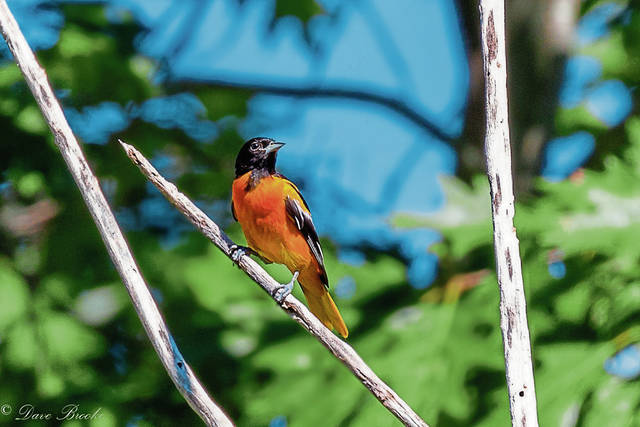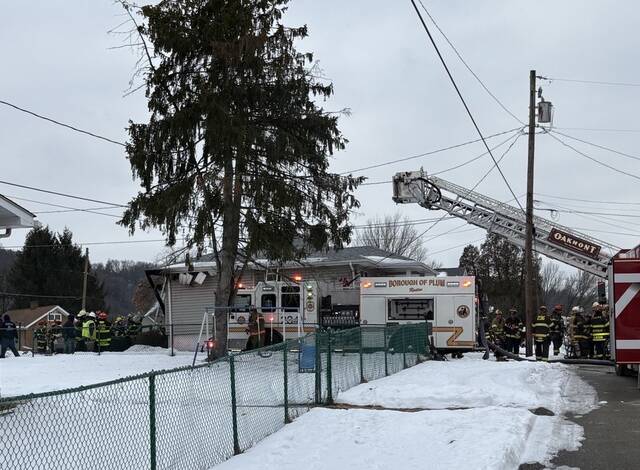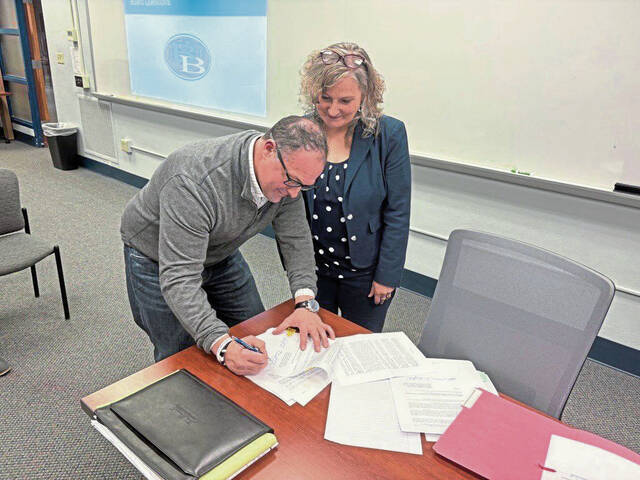Free trees and native plants will be offered to Buffalo Creek watershed residents attending workshops on managing invasive species, attracting wildlife and other topics concerning the watershed.
The watershed stretches from Butler to Freeport.
The Audubon Society of Western Pennsylvania is offering the six free online workshops for residents. They will be held from 5:30 to 7 p.m. Tuesday, April 20 and April 27 and from 7 to 8:30 p.m. May 11, 18 and 25.
The series focuses on how residents can improve their property and the watershed’s water quality, even if Buffalo Creek isn’t right outside their front door.
The first workshop Tuesday explores invasive insects and pests in the watershed, such as the emerald ash borer, woolly adelgid and spotted lanternfly. Penn State Cooperative Extension experts will lead the presentation.
“With these pests, it’s important to identify and manage them because they have the potential to wipe out dozens of tree species,” said Sarah Koenig, Audubon’s conservation director.
To boost the abundance and variety of native plants and trees, Audubon will give away either a free tree or two free native plants to participants in each workshop. Although the workshop is open to everyone, only residents who live in one of the watershed’s 21 communities will receive the free items. Trees include a variety of oaks, hazel alder and more.
Experts from the Pennsylvania Game Commission and Penn State will present the second workshop April 20 regarding resources for private landowners as well as the connection between the forest and stream health. The commission offers free trees, bird boxes and other assistance to landowners, Koenig said.
“We want to make sure residents are plugged into those resources,” she said.
The third workshop April 27 will tackle managing invasive plants such as Japanese knotweed, garlic mustard, Japanese barberry and stiltgrass.
Then in May, the next series of workshops will be led by Audubon naturalists on supporting wildlife on your property. Each participant will be given two native plants per workshop. Selections include bee balm, cardinal flower, aster and more.
“Native plants add to the beauty of your yard but also attract birds and pollinators,” she said.
Native greenery is promoted by other environmental organizations in the region.
“Native trees and plants have many benefits, including supporting pollinators and wildlife habitats, and being important to a healthy ecosystem,” said Carmen Bray, spokeswoman for the Western Pennsylvania Conservancy. “Planting native species continues to be a priority in many of the conservancy’s community forestry and restoration projects.”
Audubon’s workshop series is paid for by the Pennsylvania Department of Conservation and Natural Resources and the National Fish and Wildlife Foundation.








